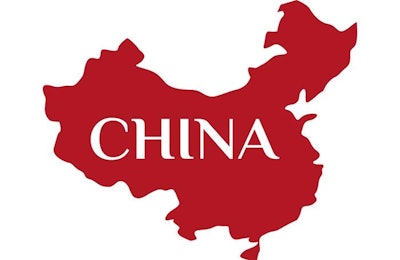
China may not be the first country that springs to mind where animal welfare is concerned but, like much else in the country, attitudes to welfare are changing.
It’s well known that consumer food preferences change once basic needs have been satisfied and incomes rise, and Chinese consumers are no exception. So the existence of numerous animal welfare groups in the country should come as no surprise, and neither should the fact that meat producers are altering their rearing methods in response to changing consumer attitudes.
Like their counterparts in markets that have a longer tradition of farm animal welfare, Chinese companies adhering to welfare standards are seeking recognition, too. Take, for example, a look at the Chinese companies recognized in the latest Good Farm Animal Welfare Awards, organized by Compassion in World Farming (CIWF).
The first Chinese company to receive a CIWF Good Production Award was a pig, rather than a poultry producer, back in 2014. This year, the number of award-wining Chinese pig producers has grown to 14.
Rising incomes, changing standards
2017 has seen the awards scheme opened up to chicken and egg producers, and a string of Chinese producers have been recognized, with eight companies receiving Good Egg Production Awards, and seven Good Chicken Production Awards.
For China, CIWF uses a 1-5 scoring system and most companies have come in at the higher end of the scale.
One of the companies to receive five stars is Yeshan Gong Chicken Eco-Breeding Demonstration Farm of Jiangsu Ningchuang Agriculture Science and Development Co. Ltd, which produces dual-purpose birds in an ecological environment with no antibiotics. The company highlights that range areas on its farms include large dust baths, there are both indoor and outdoor perching areas and that production follows strict organic criteria. This is a company already following husbandry methods that for some western companies are still on the drawing board.
And if further evidence were needed of a society better able satisfy wants rather than needs, look no further than a company that has been recognized for its attitude to welfare while selling “authentic French rotisserie chicken”.
French concern Dodu, has been given a Good Chicken Award for its operations in China, where the restaurant chain offers chicken from free-range, slower-growing breeds, and works with suppliers to improve welfare.
While these may simply be a handful of companies, who knows how many may be keen to be recognized for their welfare credentials next year, or the year after that. A few decades ago, who would have thought that China would be one of the leading nations in many of the sectors where it is now a significant player, or that incomes would have risen or the population become more urbanized.
More change may be needed before China becomes a beacon for welfare, but with a population ever-more able choose what it eats and with a society far more open to outside influences, including foreign retailers that have globally applied welfare policies, welfare may start to move up the list of Chinese priorities at an ever-faster pace.


















